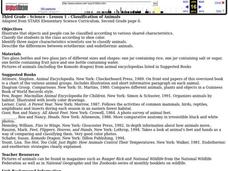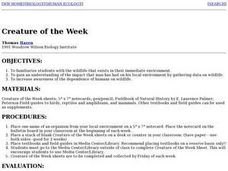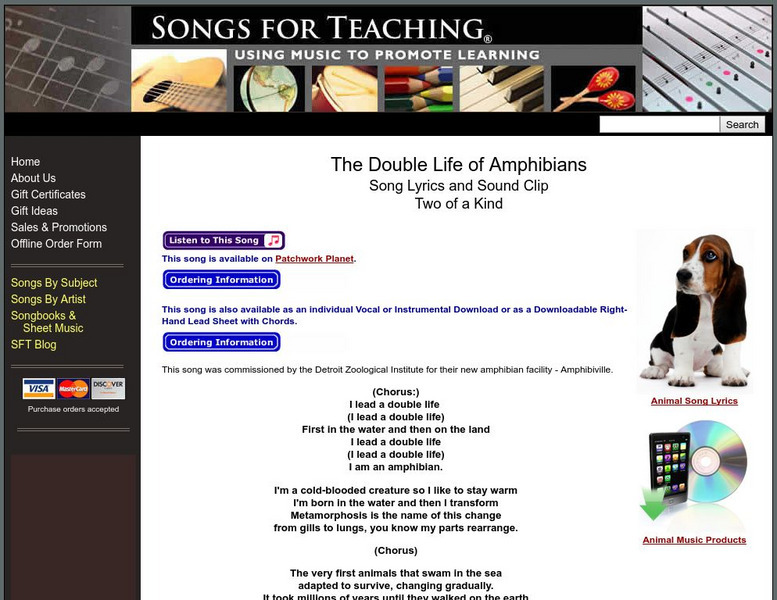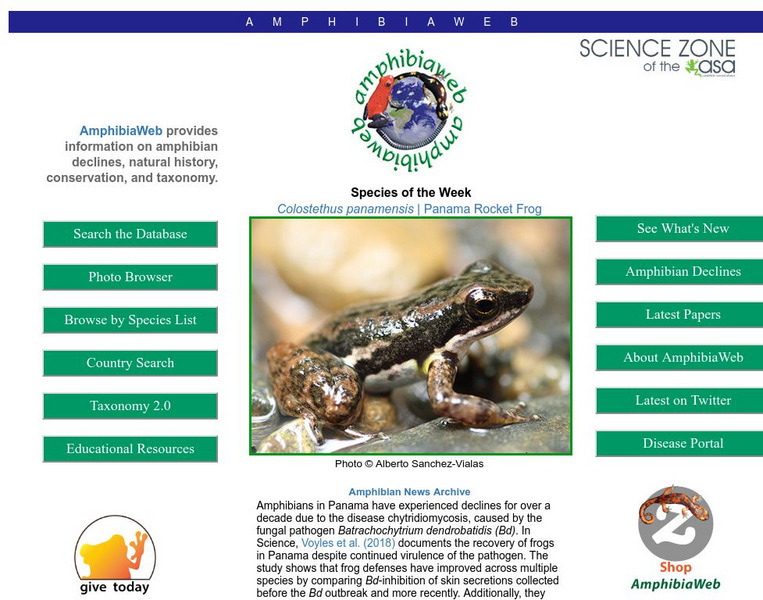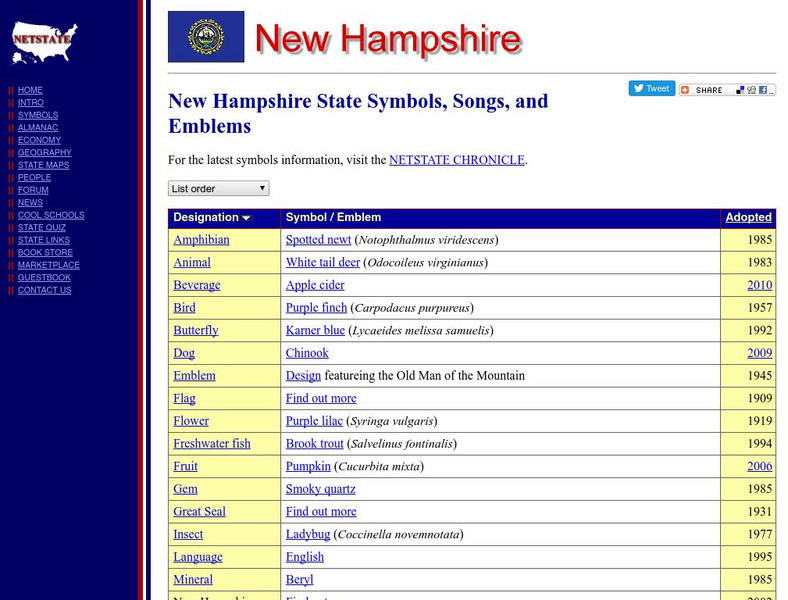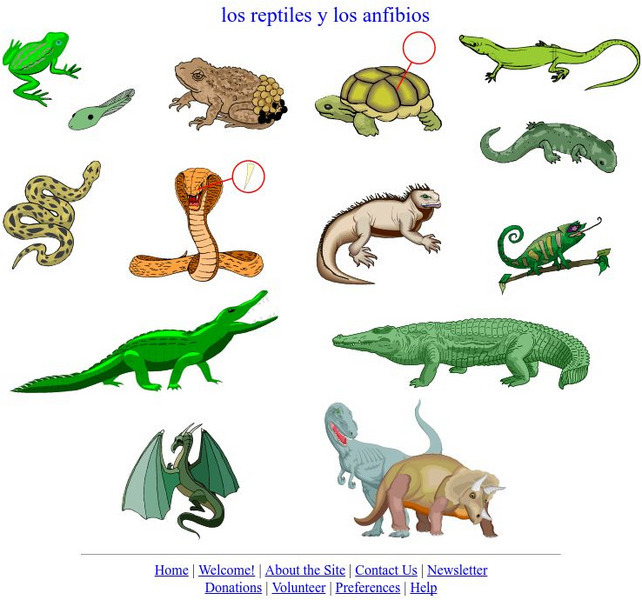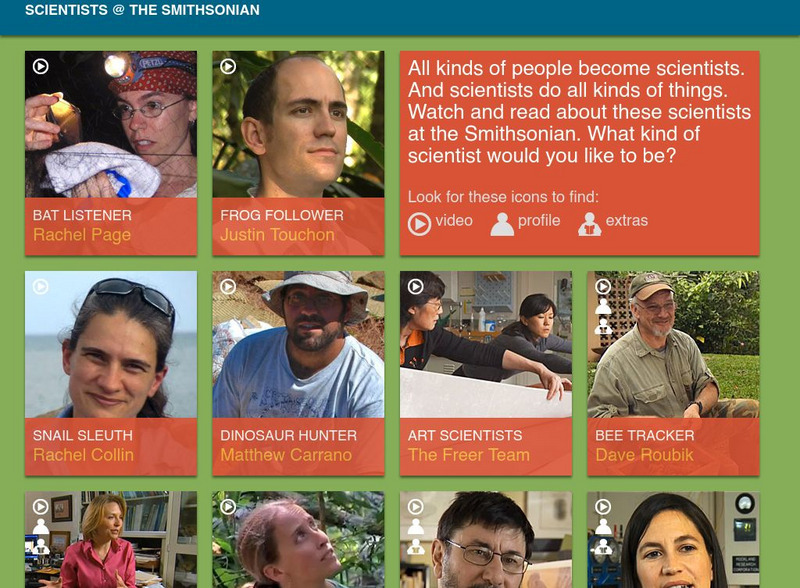Curated OER
Biology and the Digital Atlas
Students participate in a scavenger hunt on the internet. Using a digital atlas, they find answers to specific questions related to plants found in Idaho. To end the instructional activity, they share their results to the class to...
Curated OER
Collecting Fossils
In this fossils worksheet, students will read about the hobby of fossil collecting and the tools needed for collecting fossils. Students will complete 3 short answer questions based on their reading.
Curated OER
Classification of Animals
Third graders practice classiyfying items and identify three major characteristics scientists use to classify animals. They describe the differences between ectothermic and endothermic animals.
Curated OER
Rainforests of the World
Fifth graders view a National Geographic video about the rainforests of the world. They create a mural of the different types of fauna.
Curated OER
Estimating Turtle Size and Age
Students investigate how to estimate the age and size of turtles, and examine variability in scientific data. They read an informational handout, identify the parts of the shell, measure the shell and estimate the age, and record the...
Curated OER
Creature of the Week
Students explore the habits and biology of the wildlife that resides in their area. They fill in a Creature of the Week sheet for a different animal each week using field guides and textbooks.
Curated OER
Super Scientists Code
In this science worksheet, students use the key code on the right to unscramble each of the scientists. They also match each of the scientists found to their correct description.
Curated OER
Explorit's Bone Quiz
In this bones worksheet, students complete a ten question short answer quiz about human and animal bones. Students answer each question and self check. It appears that this is an online interactive worksheet.
CK-12 Foundation
Ck 12: Life Science: Amphibians
[Free Registration/Login may be required to access all resource tools.] Amphibians are a group of vertebrates that have adapted to live in both water and on land. Amphibian larvae are born and live in water, and they breathe using gills....
Encyclopedia of Life
Encyclopedia of Life: Amphibians
Thorough resource investigates amphibians with a description, pictures, and maps. Includes facts on ecology, evolution, biology, and external links.
Other
K 3 Learning Pages: Reptiles and Amphibians
Come and discover more about reptiles and amphibians when you explore this awesome resource. This site is filled with useful links.
Smithsonian Institution
Smithsonian National Zoo: Zoogoer Magazine: The Mystery of Amphibian Declines
Howard Youth's article, "Chasing Frogs and Phantoms: The Mystery of Amphibian Declines" deals with the shrinking populations of amphibians and certain conservation efforts underway.
Songs for Teaching
Songs for Teaching: Double Life of Amphibians
At this site from Songs for Teaching, you can learn of the double life of the amphibian. Learn how it changes, what dangers they face and how we can help them survive those dangers.
Other
Amphibian and Reptile Conservation: Natterjack Toad
Description of the Natterjack Toad, including how to identify it, and its life cycle. It also provides a video [6:06] of an edition of the Living World with Lionel Kellaway, focussing on the natterjack chorus.
University of California
Regents of the University of California: Amphibia Web
AmphibiaWeb, a site inspired by global amphibian declines, is an online system that allows free access to information on amphibian biology and conservation. This site is filled with amphibian facts, a glossary of terms, species numbers,...
Smithsonian Institution
Smithsonian Education: Toads, Turtles, Snakes, Salamanders, and Other Creepers
Smithsonian Education presents Reviled and Revered: Toads, Turtles, Snakes, Salamanders, and Other Creepers and Crawlers. Get the facts about reptiles and amphibians. Learn about their unique characteristics, as well as explore why we...
National Geographic Kids
National Geographic Kids: Animals: Poison Dart Frogs
National Geographic site engages users with colorful photos and extensive facts about Poison Dart Frogs.
Utah Education Network
Uen: Science Vocabulary Game
Fourth graders will play a review memory game with Utah's Grade 4 Science Standard V vocabulary words during this activity. Words associated with living things and classifications of living things are included in this activity.
NSTATE
New Hampshire State Symbols
Find a wealth of information about the New Hampshire state symbols. Click on each word to be taken to a page with a picture, information, and links to much more about the symbol. Includes year of adoption.
Language Guide
Language Guide: Los Reptiles Y Los Anfibios
This vocabulary tutorial would integrate well with a science unit on reptiles and amphibians. Vocabulary can be seen and heard when moving the mouse over each picture.
Unite for Literacy
Unite for Literacy: Mystic Aquarium: Be a Friend to Frogs!
Learn interesting facts about frogs in this book. Frogs face dangers from human activities and you will read about some things that you can do to protect them. Includes audio narration in English and Spanish with text in English.
Sea World Parks & Entertainment
Sea World: Animal Information Database
Sea World's site featuring a variety of information about their animals, as well as general animal information. Includes "Animal Bytes," a list of animals with some of their characteristics. Also includes some games and teacher resources.
Soft Schools
Soft Schools: Animal Classification Game
Decide whether an animal is an amphibian, insect, mammal or reptile with this interactive classification game.
Smithsonian Institution
Smithsonian Institution: Scientists at the Smithsonian
This is a collection of video interviews with twenty Smithsonian scientists who work in a scientific areas as vastly different as measuring the moon and figuring out what kinds of birds collide with aircraft. An interesting way to...




